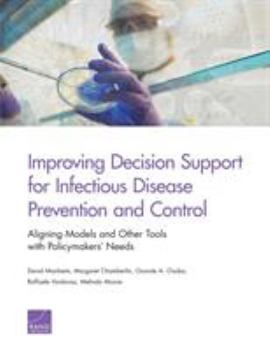Improving Decision Support for Infectious Disease Prevention and Control: Aligning Models and Other Tools with Policymakers' Needs
"This report describes decision-support tools, including models and nonmodeling approaches, that are relevant to infectious disease prevention, detection, and response and aligns these tools with real-world policy questions that the tools can help address. The intended audience includes technical experts - for example, modelers and subject-matter experts - and the policymakers that those experts can support. On one hand, this overview should help modelers and other technical experts understand the questions that policymakers will raise and the decisions they must make. On the other hand, many policymakers can benefit from a basic understanding of the capabilities and limitations of the different tools that may inform their decisions. This report describes the characteristics, requirements, uses, applicability, and limitations of three classes of theory-based models (population, microsimulation, agent-based simulation) and two classes of statistical models (regression-based and machine-learning), as well as several complementary nonmodeling decision-support approaches. The report then aligns all of these tools and approaches with a set of real-world policy questions. Finally, based on a review of published literature, an assessment of the different models and nonmodeling approaches, and recent experiences (such as the 2009 influenza pandemic), the authors recommend nine best practices for using modeling and decision-support tools to inform policymaking"--
Format:Paperback
Language:English
ISBN:0833095501
ISBN13:9780833095503
Release Date:August 2016
Publisher:RAND Corporation
Length:50 Pages
Weight:0.41 lbs.
Dimensions:0.1" x 8.5" x 11.0"
Customer Reviews
0 rating





